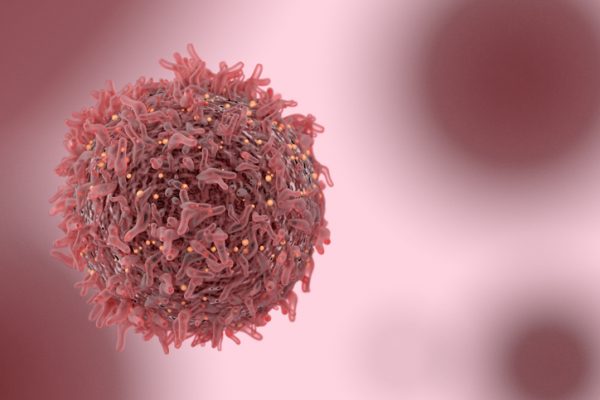
Cancer care is becoming more targeted with the development of therapies that address specific genetic signatures. Before such drugs are used, a test identifies whether a patient’s cancer matches an available therapy. A blood test called a liquid biopsy can provide that answer—but not for all genetic signatures. For example, a growing number of drugs target HER2, a cancer-driving protein found in many breast cancers. Testing for this protein requires a more invasive tissue biopsy.
Precede Biosciences aims to bring liquid biopsy to HER2 and many other cancer targets. The Boston-based startup is still a couple of years away from making its tests available to patients, but it’s already drawing interest from biopharmaceutical companies that want to apply the technology to drug research. Precede has been quietly developing its tech platform for the past two years. It emerged from stealth on Thursday as it ramps up discussions with drug developers and prepares to reveal more details about its science at key medical conferences this fall.

With the Rise of AI, What IP Disputes in Healthcare Are Likely to Emerge?
Munck Wilson Mandala Partner Greg Howison shared his perspective on some of the legal ramifications around AI, IP, connected devices and the data they generate, in response to emailed questions.
The liquid biopsy market breaks down into two camps, said Precede co-founder and CEO Rehan Verjee. Multi-detection cancer tests, such as a test sold by Grail and one in development by Exact Sciences, look for a signal or signals common to many cancers in order to detect signs of the disease from a single blood sample. Those tests aim to understand a signal that distinguishes health from disease, Verjee said. Another type of liquid biopsy is used for making treatment decisions. Such tests from companies like Guardant Health and Foundation Medicine, a Roche subsidiary, identify genetic signatures that help clinicians determine which therapies are appropriate for a patient’s cancer.
While Precede falls into the cancer decision-making camp, it aims to provide a more complete view of the activity involved in disease, Verjee said. Taking a small sample of blood, the company creates a profile that reveals the activation of genes and pathways in diseased tissue. A gene transcribes DNA into messenger RNA, which provides instructions for making a protein. The startup looks at what is happening prior to transcription, which is why the company took the name Precede, Verjee said. Precede’s computational analysis of transcription biology yields insight that provides actionable information.
“We think it dramatically expands the reach of liquid biopsy and we think we can enable better decisions, both in drug development and in clinical use,” Verjee said.
The formation of Precede comes from similar experiences under different circumstances. At the Dana-Farber Cancer Institute, physicians saw their patients’ cancers progress without having any biological insights guiding them on what to do, Verjee said. Meanwhile, Verjee’s perspective was that of a drug developer who watched clinical trials fail without any understanding why. Three Dana-Farber academics co-founded Precede with Verjee. The institute had done seminal research identifying signs of prostate cancer progression through the analysis of tissue. Precede was formed to develop that testing capability for plasma samples.
Precede’s platform brings together several different technologies already in use, but not in a way to inform clinical decision making, Verjee said. The startup can provide test results in about a week, a “sample to answer” time frame comparable to currently available liquid biopsy technologies. But one key differentiator for Precede is its ability to work with a much smaller sample—just 1 milliliter. By comparison, many platforms in clinical use require two tubes of a patient’s blood. Verjee said the ability to produce results from just 1 mL of blood comes from refinement of the technology and its methods so it can make the most out of a smaller sample. That’s important to drug developers, who often have limited specimens to work with, said Verjee, a veteran of pharmaceutical company Merck KGaA.
In drug research, biopharma companies can use the Precede technology to better understand a response to an experimental therapy, Verjee said. The tests can also help companies determine which combination of drugs or sequences of therapies to use. The potential applications aren’t limited to cancer. The ability to see which genes are switched on or off has applications in other indications, such as autoimmune disorders, Verjee said. Precede says it has generated more than 7,000 genome-wide disease transcriptional profiles across cancers and other diseases.
Diagnostic companies have already established a business template that Precede can follow as it pursues biopharma partners. Foundation Medicine, Invitae, and others work with drug developers under pay-per-sample agreements. But Verjee said there may be opportunities for other frameworks that could pin financial details to longer-term success of a potential therapy.
As for bringing Precede’s liquid biopsy technology to patients, the startup’s next step is a proof-of-concept test that could be deployed in clinical practice. Verjee said it could take about two years to develop and validate the test, and then secure regulatory approval. But in the nearer term, the company is preparing to present at the annual meeting of the European Society for Medical Oncology later this month in Madrid. The data have also been accepted for publication in a major medical journal. Verjee said Precede will report data showing the power of the platform to inform diagnostic and treatment decisions. The company will also present at the San Antonio Breast Cancer Symposium in December.
Precede was co-founded through the 4:59 Initiative, the startup creation effort within venture capital firm 5AM Ventures. That firm and Binney Street Capital of the Dana-Farber Cancer Institute supported Precede with seed financing. The startup has since raised a Series A financing co-led by 5AM Ventures and Lilly Asia Ventures. They were joined by Illumina Ventures, Bristol Myers Squibb, Osage University Partners, and Qatar Investment Authority. Without providing a breakdown of the financing, Precede said it has raised $57 million since inception.
Image: CGToolbox, Getty Images














